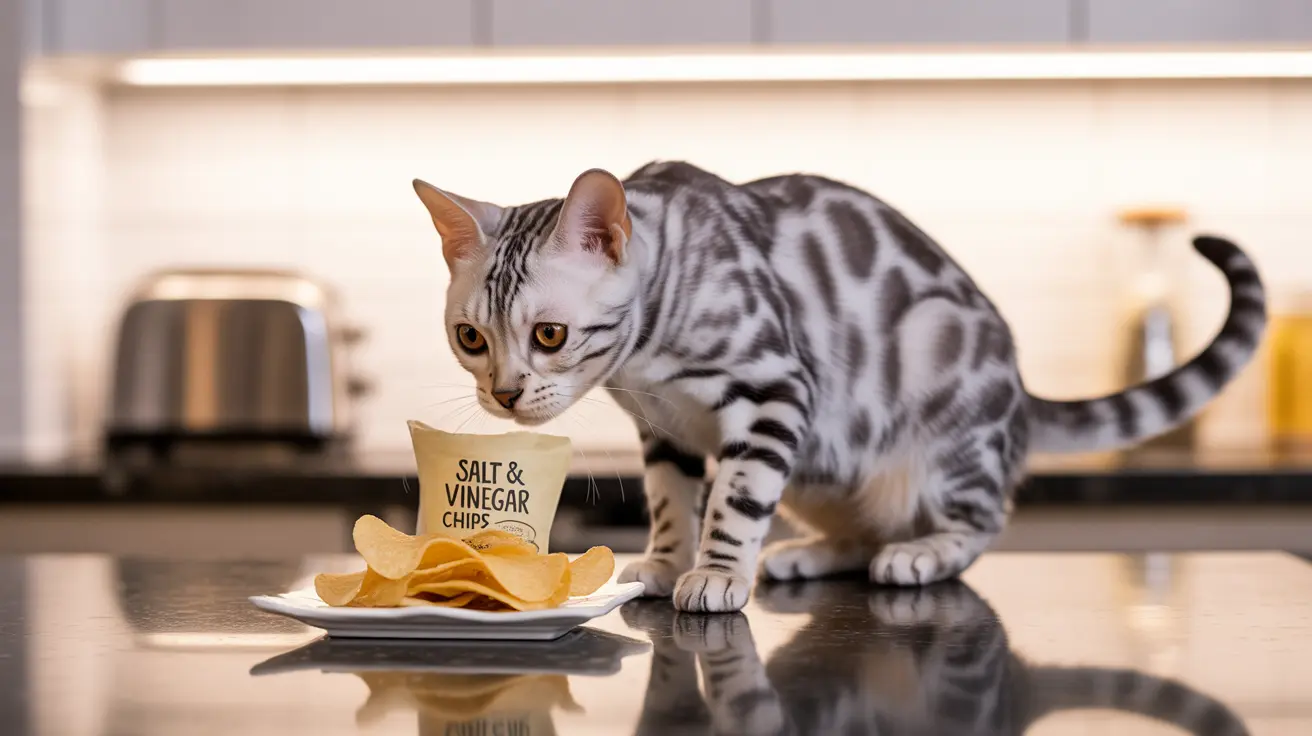For many cat owners, watching their feline friends show interest in salty foods can be both puzzling and concerning. Whether it's a curious lick of your potato chip or an apparent fascination with your sweaty hands after a workout, cats sometimes display behaviors that suggest they might have a taste for salt. But what's really going on with cats and their relationship with salt?
Understanding cats' attraction to salt involves examining their unique taste perception, biological needs, and potential health implications. Let's explore the science behind cats and salt, including what draws them to salty substances and what pet owners need to know to keep their feline companions healthy.
The Science Behind Cats' Taste for Salt
Cats have a sophisticated but different taste perception system compared to humans. With approximately 470 taste buds (versus our 9,000), cats can detect salty flavors, along with sour, bitter, and umami tastes. Interestingly, what might appear as a cat "liking" salt could actually be curiosity about new flavors or attraction to other compounds present in salty foods.
Their wild ancestors obtained all necessary sodium from their prey, which naturally contained the perfect balance of minerals. This means that unlike some herbivores, cats haven't evolved with a strong biological drive to seek out salt specifically.
Essential Sodium Requirements for Cats
While cats don't need to actively seek out salt, sodium is crucial for their health. It plays vital roles in:
- Maintaining proper fluid balance
- Supporting nerve function
- Enabling muscle contractions
- Facilitating nutrient absorption
The good news is that quality commercial cat foods are carefully formulated to provide exactly the right amount of sodium. An adult cat weighing around 9 pounds needs only about 42 mg of sodium per day, which is easily met through their regular diet.
Health Risks of Excessive Salt Consumption
Despite some cats showing interest in salty foods, too much salt can be dangerous for them. Excessive salt intake can lead to serious health issues, including:
- Dehydration
- High blood pressure
- Kidney damage
- Salt toxicity (hypernatremia)
Signs of salt poisoning in cats can include excessive thirst, vomiting, diarrhea, tremors, and in severe cases, seizures. If you suspect your cat has consumed too much salt, immediate veterinary attention is crucial.
Safe Salt Guidelines for Cat Owners
To ensure your cat maintains healthy sodium levels:
- Stick to commercial cat food formulated for their specific life stage
- Avoid sharing human snacks, especially salty ones
- Never add salt to your cat's food
- Keep salt lamps and other salt-containing items out of reach
- Consult your veterinarian about sodium restrictions if your cat has kidney or heart issues
When to Be Concerned About Salt Exposure
While occasional contact with salty substances usually isn't harmful, certain situations warrant attention. Monitor your cat closely if they've had access to:
- Rock salt or ice melting products
- Salt water pools or ocean water
- Heavily salted human foods
- Salt lamps or similar decorative items
Frequently Asked Questions
Do cats like salt and why are they attracted to salty foods?
Cats can taste salt and may show interest in salty foods, but this is often due to curiosity or attraction to other flavors present, particularly protein-rich umami tastes. Unlike some animals, cats don't have a biological need to seek out salt specifically.
How much salt do cats need in their diet for good health?
Adult cats need approximately 42 mg of sodium per day, which is already provided in properly formulated commercial cat food. No additional salt supplementation is necessary for healthy cats.
Can too much salt harm my cat, and what are the signs of salt poisoning?
Yes, excessive salt can be dangerous for cats. Signs of salt poisoning include excessive thirst, vomiting, diarrhea, lethargy, tremors, and in severe cases, seizures. If you notice these symptoms, seek immediate veterinary care.
Is it safe to feed my cat human snacks that contain salt, like chips or cured meats?
No, it's not safe to feed cats salty human snacks. These foods contain far more sodium than cats need and can lead to health problems. Stick to cat-specific treats and foods.
Should I be concerned about salt intake if my cat has kidney or heart problems?
Yes, cats with kidney or heart conditions often require specially restricted sodium diets. Work with your veterinarian to determine the appropriate diet for your cat's specific health needs.






